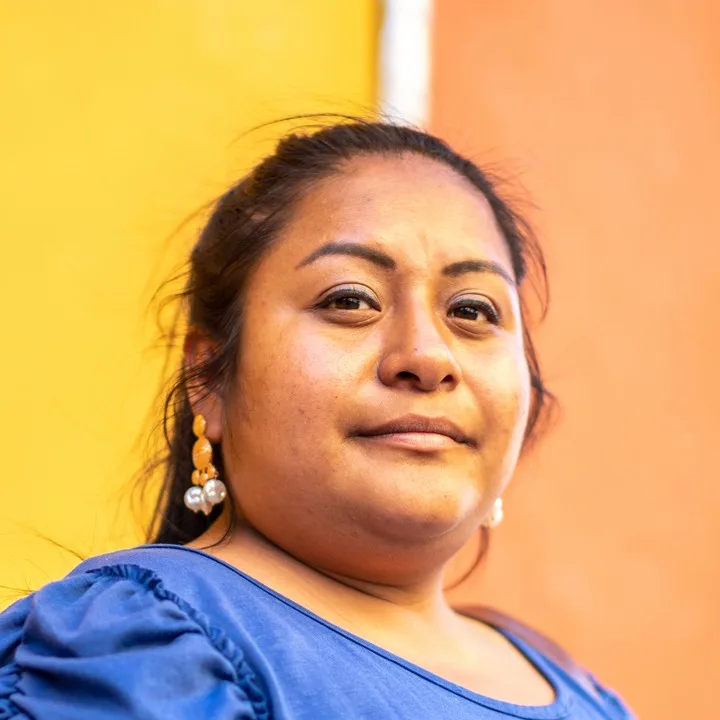
My partner said if I leave him or tell anyone that he is treating me badly, he will call immigration officers and tell them to deport me. Can he force me to leave Canada?
If you are not a permanent resident, you may feel you have to stay with a partner who is treating you badly. It's normal to feel scared or trapped by your situation. But staying with an abusive partner is not your only option. There are ways you can try to stay in Canada without having to remain in an unsafe relationship. You have the right to information and help so you can make your own decisions about your safety and security.
Content warning
This page describes situations of abuse and violence. It may bring up painful or difficult feelings or thoughts.
What you should know
“My partner promised to sponsor me. We were happy at first and I trusted him so I didn’t look into other options. Over time, he started hurting me. And I’m not even sure if he’s submitted the papers like he said he would. I keep thinking, if I leave him, I'll have no status, no money — nothing. How will I feed my son? There must be another way! I shouldn't have to stay with someone who hurts me.”
– Marisol, Vancouver, BC

Having uncertainty about whether you’re allowed to stay in Canada is sometimes called having “precarious” immigration status. It covers people who are not Canadian citizens or permanent residents.
Some people have no legal status. This means you’re in Canada without permission of the government. It includes situations where:
You stayed in Canada after your temporary status expired.
You entered Canada without proper travel documents, like a visa or passport.
You have received a removal order.
You can also have precarious status if you are in Canada with temporary status and you don’t have a clear path to renew your permit. This can include a work or study permit, or you may be here as a visitor.
You may have found yourself with precarious status if your partner sponsored you but you’re still waiting to receive permanent residence. Or your partner promised to sponsor you, but didn’t. A sponsor can also withdraw their application.
Sponsorship applications can take a year or more to process. During this time, there’s a risk that the relationship can end, leaving you with no permanent legal status. This can be a time where you are vulnerable to being mistreated by your partner.
If you are already a permanent resident
You have different options if you are already a permanent resident. See our information on steps you can take if your sponsorship breaks down. This includes situations where your partner is treating you badly.
“My partner calls me names and tells me I’m stupid. The truth is, I’m smarter than him and he feels threatened. I’m resourceful and hardworking. But he won’t let me get a job. He says I have to do what he says because he makes the money. And he looks at my phone to make sure I’m not texting with anyone. He’s never laid a hand on me. It’s still a nightmare.”
– Dolores, Smithers, BC

Abuse is never okay. Under Canadian law, it can be a crime. Abuse happens when there’s a pattern of threats or violence by one person to gain power and control over the other. When it’s between spouses or partners, it’s sometimes called family violence. Children may also be experiencing or witnessing abuse or neglect.
It can still be abuse if your partner hasn’t harmed you physically. Abuse can also be verbal, psychological, sexual or financial. For example, a partner is abusive if they:
hit or threaten you,
force you to work for them for no money,
fail to provide you with basics like food and clothing,
make you feel guilty when you say no to sex,
threaten to harm themselves if you don’t stay with them, or
don’t allow you to leave the house or contact other people.
If you are in an abusive relationship, it’s normal to feel lonely, confused, guilty or scared. Whether you choose to stay in your relationship or not, know this: abuse is never your fault. You have the right to get help. See our information below on keeping safe while facing risks to your status.
If your partner is abusing you (or your children), you may fear that you have to stay with them to keep your immigration status. But staying with an abusive partner is not the only option.
Your ability to stay in Canada will depend on your legal status and circumstances. If you are not a permanent resident, a lawyer can tell you what your options are. These may include:
You can apply to extend your temporary work or study permit, or apply to stay through another immigration program.
You can apply to restore temporary status that has expired.
You might be from a country where Canada is not sending people back to (right now) because it’s unsafe.
You might be required to stay in Canada if there’s a court order that’s about your children or another family law issue.
You can apply for a temporary resident permit as a victim of family violence. This permit allows you to leave an abusive partner and stay in Canada. It gives you time to safely figure out how to stay in Canada. (We go into more detail on this option below under the section about getting help from a lawyer.)
You can apply to stay in Canada permanently on humanitarian and compassionate grounds. (We go into more detail on this option below under the section about getting help from a lawyer.)
If you had a sponsorship application that was withdrawn or ended because of abuse, speak with an immigration lawyer before you talk to Immigration, Refugees and Citizenship Canada.
Keeping safe while facing risks to your status
Being in an abusive relationship — and ending one — is a dangerous time. As someone experiencing violence, you make decisions every day to keep yourself safe.
It’s up to you to assess the levels of risk and danger, and decide what you feel is the safest option. Below, we provide you with information about your rights, and give some tips on how to navigate risks around your immigration status. You need to make the right choices for you at the time.
“Calling the police feels like it comes down to luck. Maybe I’ll get an officer who is reasonable and won’t ask about my status. If I’m unlucky, maybe not. The uncertainty is what worries me. But I’m also scared of what my husband could do. It feels like a roll of the dice. I’m hoping to find a way to leave before it gets that bad.”
– Aarti, Duncan, BC

If you’re in immediate danger, you can call the police by dialing 911. If you want an interpreter, tell the operator what language you speak. If you live in an area that doesn’t have 911 service, call your local emergency police or RCMP.
You may feel scared or nervous about getting help from the police. If you call the police to ask for help, it’s possible that they won’t ask about your status. Remember, the abuse is not your fault. The police may take you to a safe place. This could be a shelter or a friend or family member’s home.
If you call the police about your partner’s abuse, police officers will decide what happens. Just because the police have the power to do something, it does not mean they will do it. However, it’s important for you to understand the risks and your rights, so that you can make informed choices.
If you call for help from abuse, police officers have the power to:
Ask you about your immigration status.
Contact immigration officers if they feel it’s appropriate to do so.
Check if there is an immigration warrant in your name. If there is one, police officers can arrest and detain you to report you to immigration officers.
If you do not want to call the police, and are scared that your partner may hurt you, try contacting a lawyer straight away.
Police officers can charge someone with a crime
If you call the police about your partner’s abuse and the officers believe that your partner assaulted you, they may recommend that your partner be charged with a crime. They can do this even if you ask them not to.
There is a chance you will be charged with a crime. If your partner accuses you of hurting or trying to hurt them, there is also a risk that you can be charged with assault.
If your partner is charged with a crime, there is a chance you may have to go to court to appear as a witness.
If the police, court officials, or government lawyers find out that you do not have legal status in Canada or are subject to a removal order, they can tell immigration officials. If this happens, you could be forced to leave Canada.
You have the right to leave your partner. Whether you want to stay in your relationship or not, you can get help. There are specially trained people who can give you this support. There is no legal duty on service providers to report someone without immigration status. And they cannot force you to call the police.
Here are some examples of supports you can call at this time. If English is not your first language, you can always ask for an interpreter:
VictimLinkBC is a 24-hour information and helpline for victims of family violence. Operators give support and information. They can also connect you to a legal advocate, counsellor or support worker. Call 1-800-563-0808 (toll-free in BC). If you are hard of hearing or experience difficulty with speech, you can use TELUS IP Relay. Call 711 to use this free service.
The Vancouver & Lower Mainland Multicultural Family Support Services Society (VLMFSS) offers assistance to immigrants, refugees, visible minorities, and women without immigration status and children facing family violence within the Metro Vancouver area. Call the victims services helpline at 236-865-1194.
Battered Women’s Support Services offers crisis support, legal advocacy and counselling. Contact them if you’ve been abused in an intimate relationship. Call 604-687-1867 (Lower Mainland) or 1-855-867-1868 (toll-free in BC).
QMUNITY provides free counselling and support groups to the LGBTQ+ community and operates a legal clinic. Call 604-684-5307 (Lower Mainland).
Legal Aid BC can tell you what your legal options are to keep you safe from an abusive partner. You are entitled to apply for Legal Aid even if you don’t have no immigration status in Canada. You can apply at Legal Aid BC’s website or call 1‑866‑577‑2525.
A legal advocate, a counsellor, or a victim support worker can:
meet with you to talk about the abuse and assess the situation,
provide emotional support, and
help you make a safety plan, so that you have a list of practical steps you can take to keep you (and your children) safe whether you decide to stay or leave.
With a safety plan, you and your children can stay safe while you’re in the relationship or if you decide to leave. Battered Women’s Support Services has an online tool to help you create your own safety plan. Among their resources is a guide for trans people who are experiencing intimate partner violence.
A support system can help keep you safe
It can be scary to leave your partner. If you’re planning to leave an abusive sponsor, try to set up a check-in system with trusted family, friends or neighbours. Even if they’re helping you, you don’t need to tell anyone about your immigration status if they do not need to know.
Your support network can do things like take you to appointments, be on stand-by if you need a safe place to go, give you information, and point you to resources. They can also advocate for you and support you during difficult or stressful conversations.
If you’ve been isolated from friends or family, you can reach out to a community organization. They can help you find someone who can speak your language and who understands your culture. These include places like MOSAIC and the Immigrant Services Society of BC.
If you are in an abusive situation, you (and your children) can stay at a shelter or a transition house until you find a better place to live. VictimLinkBC can connect you with a women’s centre, shelter or transition house or other support worker. You can reach them on 1-800-563-0808.
Shelters and transition houses offer free shelter and food for a period of up to 30 days. You usually have to live with others. Transition houses are specifically for women who have been abused by their partner. Some will let you stay longer if you are a woman without immigration status. Second-stage housing can provide housing from nine months to two years.
It may be a good idea to find out how the shelter or transition house deals with police officers or immigration officers. Some questions you could ask include:
Will the people working there report you if they find out you don’t have status?
Will they give information about you to police or immigration officers if asked?
Do they require any identification or other documents for you to stay at the shelter?
You don’t have to give your name over the phone. Or you can ask a support worker or trusted friend who does have immigration status to ask for you. They don’t need to say who they are calling for.
If you have temporary or no immigration status, you may depend on your partner to pay for your basic needs such as food, shelter and clothing. This makes it difficult to leave your partner if they are treating you badly. Reach out to a support worker or lawyer about your options. Here are some ways that you can access money:
You may be able to apply for spousal or child support.
If you’ve applied for a temporary resident permit for family violence, you may be able to get social assistance. You can also work if you get this permit.
If you have some form of temporary status in Canada, you may be eligible for the Canada Child Tax Benefit. You need to have lived in Canada continuously for 18 months with ongoing status to be eligible.
You may be able to ask family and friends, as well as religious or cultural groups for support.
A lawyer can help
If you have ended — or want to end — an unsafe relationship and you are not a permanent resident, talk to a lawyer as soon as possible. Understanding your legal options can help you make your own decisions about your safety and security.
The legal system in Canada can be confusing and scary. Many newcomers feel this way, especially if they’ve had bad experiences in their home country. It can be even harder if you don’t speak English well or are not familiar with Canadian culture.
A lawyer cannot force you to do anything you don’t want to do. A lawyer can:
Help you understand your situation and tell you what your options are.
Listen to your concerns and tell you about any risks or benefits of taking different paths. For example, a lawyer can help assess any risks such as losing access to your children or being deported.
Tell you if there are ways to get what you want if you’d rather not go to court.
You know what you’ve been through and what you can handle. The hope is that a lawyer can get you legal outcomes that make your life easier.
The idea of talking to a lawyer might make you feel nervous. You may be scared that your immigration status will be found out if you get in touch with a lawyer. A lawyer has a duty to keep their communications with you confidential. That means they cannot tell anyone what you’ve spoken about unless you say they can.
If you decide to speak to a lawyer, here are some things to keep in mind:
Gather your documents (such as passports, landing documents, expired permits, text messages and photos) to give to your lawyer. If you don’t have any documents, that’s okay.
Try your best to think about what’s happened in your relationship and with your immigration status. Try to tell your lawyer in the order that it happened and in point form. If you don’t know or don’t remember, tell your lawyer you are having trouble with your memory.
Tell your lawyer the truth even if you think it might hurt you. Your lawyer needs to know all the information to do their best work for you. It’s also important to let the lawyer know what you want and anything you are concerned about. If you’re not sure, it’s okay to ask your lawyer to explain what your legal options are.
Use your time with your lawyer well. Be on time for your appointments. If you’re running late or have to cancel, call your lawyer’s office to let them know. Come prepared to meetings with questions or issues you want to discuss.
You don’t have to do this alone. A counsellor can give you emotional support. And you can ask the lawyer if a friend or community worker can come with you to meetings. As well, this toolkit for immigrant women working with a lawyer will help you prepare and give you confidence to speak with a lawyer.
Getting in touch with a legal advocate or lawyer
A legal advocate can help you with legal issues. They are not lawyers. Advocates have experience supporting people who are fleeing abuse. They can give you legal information and emotional support. They can be a support person in meetings and at court. You can reach out to different advocates to find someone who you are comfortable with and who understands your culture. To find a legal advocate, call VictimLinkBC at 1-800-563-0808 or visit PovNet.
If you need a lawyer, ask an advocate or support worker if they know someone who has experience working with people in your situation. You can also contact Legal Aid BC to apply for help. If you qualify for legal aid, you may be paired with a navigator. This is a non-lawyer who can help guide you through the legal aid process.
Even if you have no or temporary immigration status, you have rights under family law. A lawyer can help you understand your situation and tell you what your options are. You can tell your lawyer if you’re worried about anything and they can tell you what the risks and benefits of different legal options are.
For example, a lawyer can help you:
Address issues to keep you and your children safe. This may include applying for a protection order against your partner.
Tell you what your rights and options are if you want to separate from your partner.
Tell you your options under family law if you want to stay in Canada or return to your home country with your children.
Help you apply for spousal or child support.
Who you can call for help with family law issues
You may be eligible for services from Legal Aid BC even if you don’t have immigration status. They may be able to help you with legal representation, legal advice or information. Even if you don’t qualify for legal aid, you may be able to get legal advice about your family law issues.
You may be able to talk in-person to family duty counsel at court locations across the province. Or you might be able to connect with a lawyer over the phone through Family LawLINE.
Call Legal Aid BC at 1-866-577-2525. They will ask you some questions to see if you are eligible for their services.
If you don’t have status or have temporary status, a lawyer can help you apply for a temporary resident permit. The permit allows you to stay in Canada safely for some time, without relying on an abusive partner. It gives you time to consider your options, including other pathways to permanent residence.
If you are a victim of family violence, there is no fee to apply for this permit.
You may qualify if you:
are in Canada,
are experiencing abuse from a spouse or common-law partner, and
need to remain in that relationship in order to pursue permanent residence.
This can include situations where a sponsorship application is not yet in process. For example, if your sponsor made you believe they submitted an application but they did not.
You can apply for an open work permit at the same time so you can support yourself. As well, you may be eligible to apply for social assistance. This is money from the government to help cover your basic needs.
If you receive the temporary resident permit:
In most cases, it will be valid for at least twelve months. (You can apply for a longer period of time, and you may be able to re-apply if it expires).
You can get coverage for trauma counselling and other health benefits.
You can apply for a study permit.
The process is designed to be as quick as possible for those in urgent need of safety.
It’s important to talk to a lawyer
You can apply for the temporary resident permit directly. However, if your immigration status may be at risk, you should speak to a lawyer straight away. It would be best to talk to a lawyer to help you make the application.
You can call the Immigration and Refugee Legal Clinic at 778-372-6583. Legal Aid BC also has a direct immigration line free of charge at 1-888-601-6076. As well, you can reach the Law Students’ Legal Advice Program at 604-822-5791 for other immigration questions.
You may be able to apply to become a permanent resident by making an application on humanitarian and compassionate grounds. You can apply for a temporary resident permit at the same time. A lawyer can tell you whether this makes sense in your situation.
With this kind of application, you are asking the government to make an exception to immigration rules. That is, even if you don’t have status, you are asking them to grant you permanent residency based on your circumstances.
Immigration officers will assess your personal situation and make a decision. They will consider evidence of abuse. You’ll also need to show that leaving Canada would cause you hardship. For example, you could show how doing so would separate you from your children.
You can also show how you won’t be safe in your home country if you return. Lack of family support can be a factor that would expose you to violence. Immigration officers will also consider whether you have made a new life and connections in Canada.
Your application may be processed faster if you have experienced family violence. If the application is approved, you will have all the rights, benefits, and obligations of a permanent resident. This includes the right to live and work anywhere in Canada.
If you want to make this type of application, try to speak to a lawyer or settlement worker straight away. These applications are complex. A lawyer can help you understand the process as well as fill out the paperwork. They can also let you know if and when you can apply for an open work permit.
Here are some things you should know before you apply:
If you hire a lawyer, the cost will likely be high. Legal Aid BC may take on these kinds of cases, for free, in limited circumstances.
There’s a fee to apply. It’s $1,210 per adult and $175 per independent child. You can’t get a refund, even if your application is refused.
There’s no guarantee that the application will be approved. A lawyer can tell you your chances of success.
If your application is rejected and you want to challenge the decision, you’d have to go to the Federal Court of Canada to ask them to review the decision.
Common questions
If you’ve been given a removal order, talk to a lawyer straight away. A removal order is an official document from immigration officers telling you to leave Canada. They can be issued if immigration officers become aware that you are in Canada without legal status or you have overstayed a temporary permit.
Depending on your situation, a lawyer could help you:
Apply for a temporary resident permit for victims of family violence. The Canadian border services authority will be alerted and the removal might be put on hold.
Apply to defer or stay your removal. A stay of removal is usually granted for a temporary period of time.
Apply for permanent residence on humanitarian or compassionate grounds. (Making this application alone won’t stop or delay your removal. But you can apply for a temporary resident permit at the same time)
It’s normal to be worried that you may not be able to keep your kids with you. Each situation will be different.
If you decide to leave an abusive partner, don’t tell them you’re leaving until you’re in a safe place with your children. And try to talk to a lawyer at least once before you leave, or meet with one soon after you leave. Ideally, you should speak to a family lawyer and an immigration lawyer. This is because there are both immigration law and family law issues at play when a child is involved. You can reach out to a legal advocate to connect you with lawyers who have experience with people in your situation.
A lawyer can tell you what your rights are, actions you can take, and any risks and limitations of your actions. They can also tell you practical steps to take to keep your kids with you.
You may decide that you want to return to your home country. If your child was born in Canada, there’s a chance you may not be able to take them back with you. For example, your partner may try to get a court order that prevents you from leaving Canada with your children. A lawyer might be able to help you apply to the court for permission to leave the country with your child.
The best interests of the child is the main guiding factor in both family law and immigration law decisions that impact a minor child. A decision maker (like a judge or immigration officer) must consider the best interests of the child (and not even their parents).
If you want to remain in Canada, talk to a lawyer about your rights and options under family law. Under the law in BC, you can go to court to apply for the responsibility to make decisions for your child. You can also go to court to ask for a decision about parenting time with your child. This law applies no matter what your immigration status is.
If you go to court, you will have to identify yourself. If you don’t have legal status in Canada, a lawyer can tell you about whether there are any immigration risks of going to family court. There are also ways that parents can resolve their family law problems outside of court.
As well, your right to stay in Canada will depend on your immigration status. A lawyer can help you figure out what options are available to you, such as a temporary resident permit or applying for permanent residence.
You do not have to report the abuse to the police in order to apply for a temporary resident permit or for permanent residency. A lawyer can tell you what other evidence may help support your application.
Who can help

VictimLink BC
A toll-free 24/7 information and support line for victims of crime in BC.

Battered Women’s Support Services
Provides emotional support, information and referrals to women who have experienced abuse.

Access Pro Bono's Legal Advice Clinics
Volunteer lawyers provide 30 minutes of free legal advice to people with low or modest income.

UBC Law School's Student Advice Program
Law students provide help to people with limited means in the Vancouver area.

Legal Aid BC
Provides free legal help in criminal, family, and immigration matters to those who meet financial guidelines.

Migrant Worker's Centre
A non-profit organization that provides legal information, advice and full representation to migrant workers in BC.


